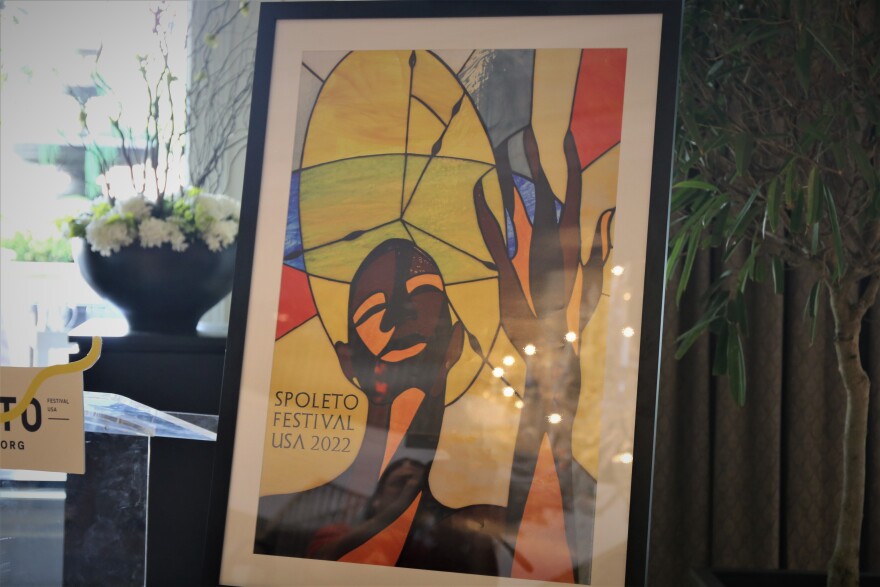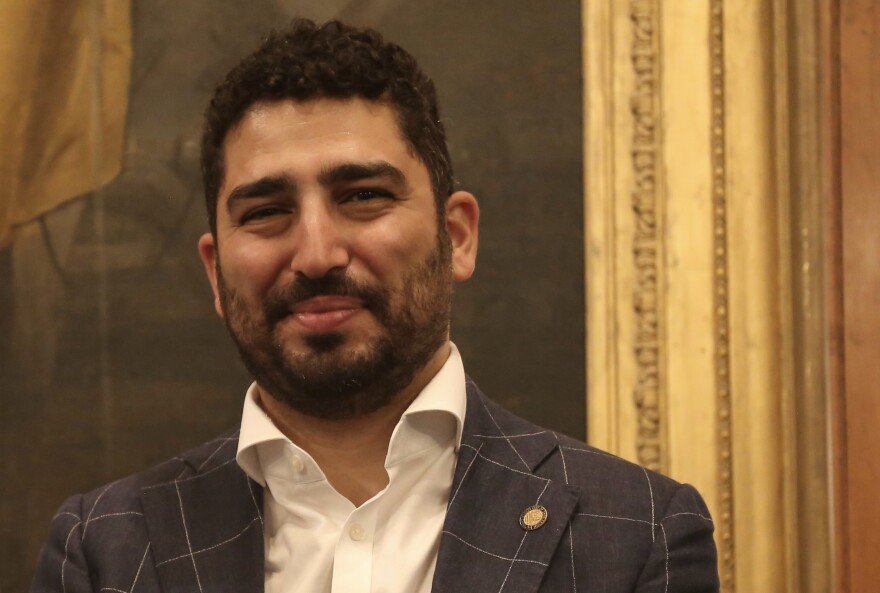The 46th season of Spoleto Festival USA is well under way and its new general director isn’t quite settled at his Charleston office at 14 George Street. Mena Mark Hanna’s desk is, let’s just say busy. And there’s a bicycle by the door.
“Yeah I’m still moving in,” says Hanna.
The 37-year-old has been on the go since moving from Berlin, Germany nine months ago to take over for decades long festival director Nigel Redden who retired last year saying it was time to make room for someone new. Hanna, the son of Egyptian immigrants, is the first person of color to lead the festival since its beginning in 1977.
"It was like Kismet"
Hanna says he was drawn to Spoleto after learning about the world premiere of Omar, an opera based on the autobiography of Omar ibn Said. The West African scholar was taken from his home in Senegal and enslaved in Charleston in 1807. His autobiography is the only known narrative by an American slave written in Arabic.
“It’s in a language that I read, write and speak,” says Hanna. “It was like kismet, like I needed to be a part of that.”
Hanna also saw a city perhaps ready to reckon with its history. Charleston attracts tourists worldwide with its beauty and charm. But it’s also where 150,000 to 200,000 African people were forced into labor as the largest slave port in the nation. It’s where Omar Ibn Said was unloaded like cargo and sold.
“If we do not understand our history, if we do not pay homage to it, if we do not learn it, it bleeds into our present in a destructive manner,” says Hanna.
Hanna believes art can build bridges. He is a musician and scholar who has studied colonialism in classical music.
He grew up outside Philadelphia, singing in the city’s boys' choir. He was also a cantor in the Coptic Orthodox church, learning chants as part of Egyptian Christian worship. Both kinds of music captured Hanna’s imagination and made him eager for more perspectives in music.
“I want it to be both Western and Eastern at the same time,” says Hanna. “I want that conversation to be a place where we can thrive and understand and celebrate humanity.”
At his last job in Berlin, Hanna was a founding dean and professor at the Barenboim-Said Akademie. It’s known for training students from the Middle East and North Africa in music, philosophy and history.
Now Hanna is tasked with bringing a 17-day festival with more than 120 performances back to life in Charleston safely, following a worldwide pandemic that’s proven persistent. This season, people are still required to wear a mask at Spoleto events.
“It has affected things in ways that people can’t even imagine that I couldn’t even foresee,” Hanna said before a gathering last week to unveil the festival’s new poster.

Hanna says the pandemic has left Spoleto dealing with a labor shortage and higher prices for production materials. That just adds to financial setbacks from having to cancel performances for the first time ever in 2020 and scale them back last year.
Still, Hanna has big plans for Spoleto’s future. He wants the festival to become more diverse, both on stage and in its audiences.
“We have to share the public value that we are creating,” says Hanna. “The way we share that public value is not just by inviting people in but actually going to people.”
The festival’s first new director in nearly 40 years wants to take performances off the peninsula as well, to communities where people might not otherwise be able to attend. He says the story of Omar Ibn Said must be shared, calling him the most marginalized person in American history and the opera important.
“Set to the emancipatory power of music less than a mile away from where he was sold into slavery at Gadsden’s wharf, that’s monumental.”
If art is to build bridges as Hanna believes it can, he says it must first be accessible to all kinds of people.



